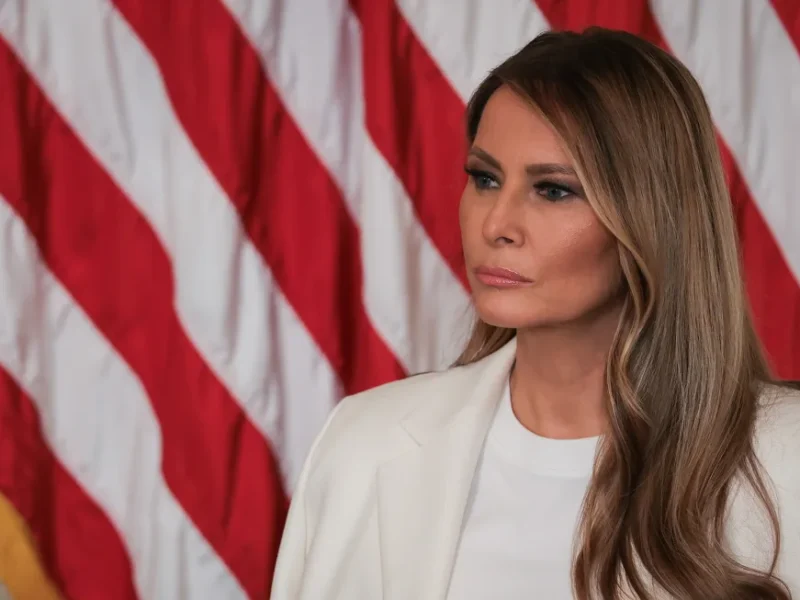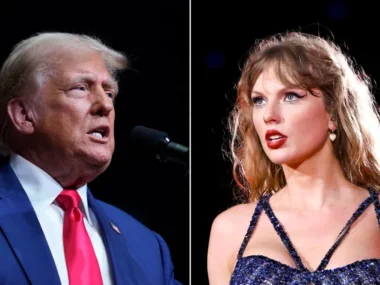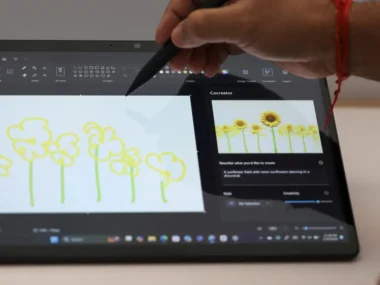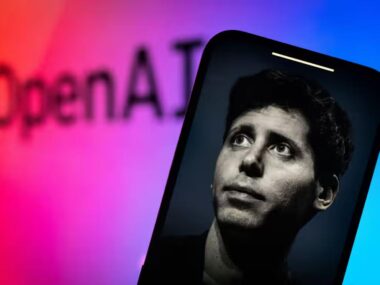Melania Trump announced on Thursday the release of her memoir in audiobook format, stating it’s narrated in her voice—though it’s entirely generated by artificial intelligence.
In a post on X, she shared: “I am honored to bring you Melania – The AI Audiobook – narrated entirely using artificial intelligence in my own voice. Let the future of publishing begin.”
While she isn’t the first to use AI for such a purpose, her public embrace of the technology highlights its growing role in media creation. From news stories to video content, AI’s influence is expanding—prompting concerns about its effect on media industry jobs.
“It’s too simplistic to assume job losses are guaranteed,” said Alex Connock, senior fellow at Oxford’s Saïd Business School, in an interview with CNN. “But it’s unrealistic to think AI won’t change how employment in media functions.”
Possibly not arriving at your local cinema anytime soon.
Melania Trump’s memoir will be released as an audiobook narrated by an AI-generated version of her voice, which her website notes was developed under her direct guidance.
Experts point out that using AI for voiceovers is becoming increasingly routine, thanks to tools from companies like Google and ElevenLabs—the latter being the platform Trump used. These tools can turn text into natural-sounding audio, much like a podcast.
However, Trump’s high-profile use of the technology has brought new attention to the trend.
Clay Shirky, vice provost for AI and technology in education at NYU, told CNN that while AI won’t immediately replace human voice actors, this move marks a significant turning point. “These shifts tend to happen gradually, but this is definitely a milestone,” he said.
Trump’s announcement coincided with tech giants advancing generative tools. Google recently revealed a new version of its video model capable of generating synchronized audio and character dialogue. OpenAI also saw major demand for its tools—such as the video model Sora and an image generator known for its Studio Ghibli-style visuals—highlighting growing public interest in generative AI.
Despite these innovations, full-length AI-generated films aren’t expected anytime soon. Shirky says the tech is currently best suited for short-form content typically seen on social platforms.
Still, traditional media is paying close attention. Alex Connock, a consultant for TV production companies, shared that he’s had several meetings recently with producers curious about AI’s potential—something that rarely happened a year ago. Many are now exploring interactive applications, like digital versions of TV hosts that audiences can engage with in real-time.
Connock notes this shift reflects a growing need for TV to keep pace with the innovation seen among social media creators. “The traditional TV world has realized it needs to match creators step for step in using these tools,” he said.
Looking ahead, AI might push media from passive consumption to interactive experiences. As Oren Etzioni, former CEO of the Allen Institute for AI, put it: “Imagine being able to have a conversation with Melania Trump about a chapter of her book. That kind of experience isn’t far off—it’s coming to a book near you.”
AI and the future of jobs
The release of Trump’s AI-narrated audiobook comes amid growing concerns over AI replacing human jobs, especially as the technology improves in tasks like podcast production, book writing, and coding.
According to the World Economic Forum’s Future of Jobs report published earlier this year, 41% of employers anticipate reducing staff as AI takes on more workplace responsibilities. LinkedIn’s chief economic opportunity officer, Aneesh Raman, also voiced concern in a New York Times op-ed about AI potentially displacing entry-level positions.
These anxieties are especially pronounced in the media sector. In 2023, the Writers Guild of America went on strike partly to ensure AI wouldn’t replace writers. The strike ended after 146 days with an agreement that prohibits the use of AI to write or revise literary content.
The WGA declined to comment when asked by CNN.
Experts say determining if AI will fully replace media jobs is complex. Some fields, like voiceover work, may feel the impact sooner. But other jobs, especially those requiring deep human insight—like investigative journalism—are harder to automate.
“If you’re an investigative journalist building relationships and decoding complex issues, that’s not easily handed over to AI,” said Clay Shirky.
Instead of eliminating roles, AI may change the makeup of teams. Companies might begin hiring individuals with technical and AI-related skills alongside traditional creative professionals.
“Where you once had three arts graduates in a development department,” said Alex Connock, “you might now see a mix: one with an arts background, one experienced in coding, and another focused on academic research.”











